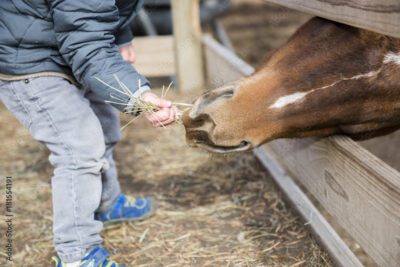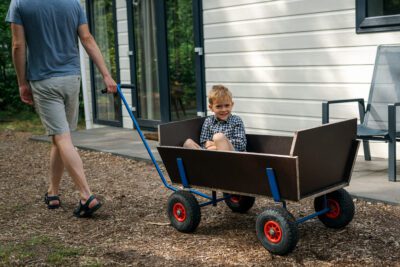By Christine Denise
Autism Mom and Contributing Writer for As You Are, a virtual clinic dramatically increasing access to early autism diagnostic services through the use of exclusively telehealth appointments
Figuring out what my son enjoys doing is sometimes a challenge.
He’s nonverbal, so he can’t tell me.
But he sure can show me, with his flappy hands, his smile so wide it looks like it hurts his face, and sometimes a squeal.
As different as children with autism are from each other, I have found a few things my son likes to do that others like him seem to like to do, too.
Every time I meet another family who has a child with autism, I try to compare notes on what seems to bring them joy – hoping to find new things to try and unlock my son’s happiness.
I thought I would list them here in the hopes that your child may find delight in them as well.
And whatever brings a smile to your child’s face will likely bring one to yours.
Swimming
I recently visited a family whose 14-year-old son has autism.
I was at their house on business – there to talk to them about an experience they had that was completely unrelated to their son’s diagnosis as part of my job as a reporter.
We, of course, chatted about our children and what makes them tick.
I immediately noticed a pool they had in their backyard.
I told them how we have invested in a membership to our local public pool, and, thankfully, there is an indoor pool as well.
They said they couldn’t imagine their son’s life without the pool, and how he can spend hours just floating and flapping his hands under water.
My son loves to put his face under the water – something their son didn’t like to do as much.
Their son also prefers to jump in and out of the water as much as possible, where our son prefers to climb in and out on a ladder or the steps of a pool.
I’ve also talked with other families, who say their children with autism are drawn to the water.
We don’t have enough money to have a pool of our own, but our bathtub also does just fine while he’s little. We bought him some LED bath toys that flash colors and turn off the lights in the bathroom so he can see the colors dance around the room.
It is definitely one of his favorite ways to spend an evening before bed, and his older brothers get a kick out of helping him with his baths too.
Jumping
Trampolines are another one of my son’s favorite things.
The first time he went on one, he acted as if he were falling off the top of a skyscraper. Within just a few minutes of his older brothers assuring him it was fun, he began to bounce and crawl on the flimsy surface – entranced with the feedback of the fabric underneath him.
Now, at 9 years old, he mostly bounces on his feet – but he sometimes goes back to his knees, especially when the bouncing becomes a little higher than he was expecting.
He also loves to let his head go slightly back when he bounces.
His occupational therapist told me jumping on a trampoline is a vestibular sensory experience – stimulating and challenging his sense of balance and how his body interacts with gravity.
He has also learned that bigger people can make him bounce higher if they jump next to him, so he tries to take people by the hand he sees at trampoline parks and lead them to his trampoline when his older brothers or my husband and I get too tired to jump.
Yes, that’s right, this kiddo can tire out both of his 12-year-old twin brothers on a trampoline.
Three other families of children I know with autism have trampolines in their backyards, and some in their basements. My house isn’t big enough, so we visit trampoline parks as often as we can.
Vibration
My son’s occupational therapist noticed how oral sensory seeking my son is from the beginning.
She watched as he would chew up the collars of all of his shirts – so she suggested we use chewy necklaces. They remind me of old telephone cords – I know, I’m showing my age.
In addition, she recommended we try finding chewy toys that vibrate.
We thankfully didn’t have to look far, as there are many things that fit the bill.
My mother recently found a pillow that vibrates when pressure is applied to it. My son loves to bury his face in it, and seems to like the cause and effect of it as well.
Cheap massagers are also a crowd favorite for him to hold and put under his chin.
Other families who have children with autism have told me their children love to feel vibration as well.
We even let our son play with a battery-powered toothbrush, just to get him used to it and maybe make teeth brushing a little bit easier.
Listening to loud music
I think this kind of goes along with my son’s love for vibration.
He really enjoys listening to loud music – and he loves to find the speaker it is coming out of when he hears it.
He tries to sit as close to the speaker as possible, and loves to spin around on his heels, flap his hands and jump to the beat.
The more bass, the better.
On another visit with another family who has a child with autism, their son’s preferred calming method was jumping on a trampoline, while holding a cellphone in his hand playing John Mayer with the flashlight on in complete darkness.
My son’s favorite band is Ok Go. He loves to watch their music videos, too.
Many families who have children with autism – including ours sometimes – shy away from taking their child to large loud events like concerts, parades or festivals.
Our absolute no-go is anything with fireworks.
Otherwise, our son truly enjoys the sound of a concert or a parade – especially if there is a marching band.
It’s just trial and error when it comes to finding your child’s auditory sensory preferences.
I certainly never thought we would be doing as much as we are as a family now given how autism can make sensory overload a real struggle.
Again, that’s the beauty of a spectrum.
Swinging
One of my closest friends who gave birth to twins three months before I did used to tell me how she and her husband could not travel anywhere without their baby swing for their newborn son.
It was their crutch. Something about the motion of swinging helped calm him in ways neither of them could.
As he got older, he never lost his affinity for swinging.
And at the age of 3, he was diagnosed with Autism.
Suddenly, his craving for swinging made a lot of sense to them as they met others in the Autism community who enjoyed swinging and spinning as well.
My son also loves to swing. We are fortunate to live near a public park where he often likes to go and swing.
A sensory indoor gym not too far from our house also has an almost entire room full of different kinds of swings.
Spinning
Another sensory outlet for my son is spinning.
He loves to spin on the back of his heel, and the old sit and spin toy is also a crowd favorite for my son as well as other children I have met with Autism.
When he was much smaller, and I was younger, I could hold him and spin him in my arms.
He would laugh and smile, loving to throw his head back to feel as much of the force of gravity as possible.
Now, his older brothers spin him when they can.
His favorite swing at the sensory gym we go to also spins.
Everyone is different – yet they may have some things in common
iPad or cellphone.
Our absolute crutch for anything and everything we do – including just spending time at home – is my son’s iPad.
This can be a somewhat controversial topic, as we constantly hear how screen time is so damaging for neurotypical children.
My older sons often complain about how much screen time their brother with special needs gets compared to them.
But they also understand how critical it is for his happiness and ability to calm himself.
They also marvel – as do we – at how well he seems to navigate his devices and what he actually spends his time watching and looking at when he has them.
He loves flipping through our pictures. In fact, it’s my cellphone he most often wants because I have the most pictures to look at.
And his favorite videos to watch repeatedly are the speech therapy videos, his speech therapist shares with him, as well as the songs he listens to at school that include the alphabet, some sign language and other educational programs.
iPad is also one of the few words he actually speaks.
Other families I’ve met who have children with autism also lean on electronic devices to help their children calm themselves as well as letting them have something they truly enjoy.
My son’s face lights up when I start to sing along to the speech therapy song he is listening to for the hundredth time.
And so does mine.
Do you have questions about your child’s development? The team at As You Are provides useful autism screening and diagnostic evaluations for kids 16 months to 10 years old via telehealth appointments.
Disclaimer: I am not a medical professional. This is a sponsored blog post, but all opinions are my own.


















